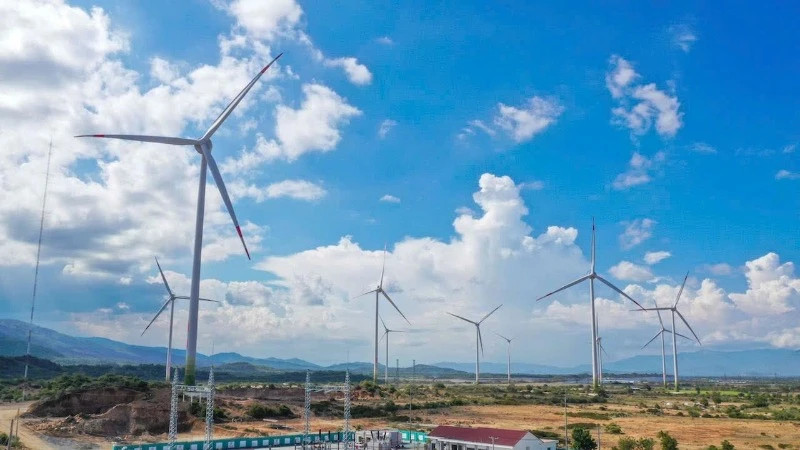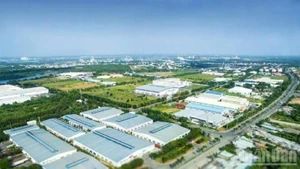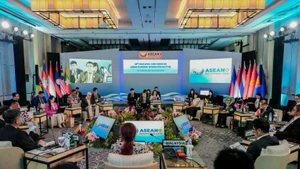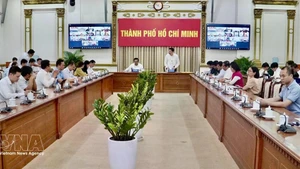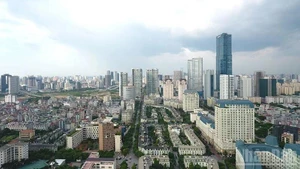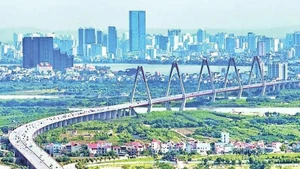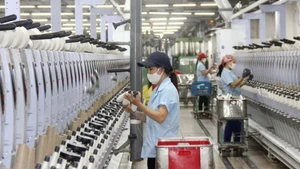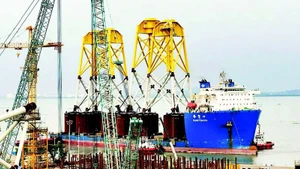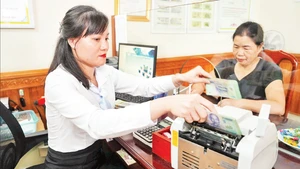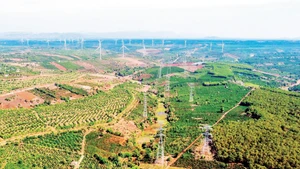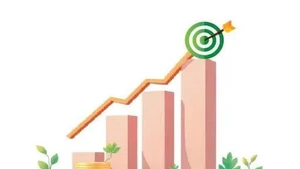National commitment
With its successful organisation of the fourth Partnering for Green Growth and the Global Goals 2030 (P4G) Summit in Hanoi from April 14-17, Vietnam not only demonstrates its strong political commitment but also opens practical public–private cooperation pathways for climate action.
Vietnam’s commitment is not merely rhetoric but has been concretised through specific goals, strategies, initiatives and actions such as achieving net-zero emissions by 2050 in line with its pledge at COP26; and aiming to increase the share of renewable energy sources (excluding hydropower) for electricity generation to approximately 74–75% by 2050.
As Party General Secretary To Lam said at the P4G Summit, Vietnam is currently the top provider of renewable energy in ASEAN, with wind and solar power accounting for two-thirds of the region’s total capacity. The country’s one-million-hectare quality and low-emission rice cultivation project has emerged as a pioneering model that has attracted significant attention from international partners and organisations.
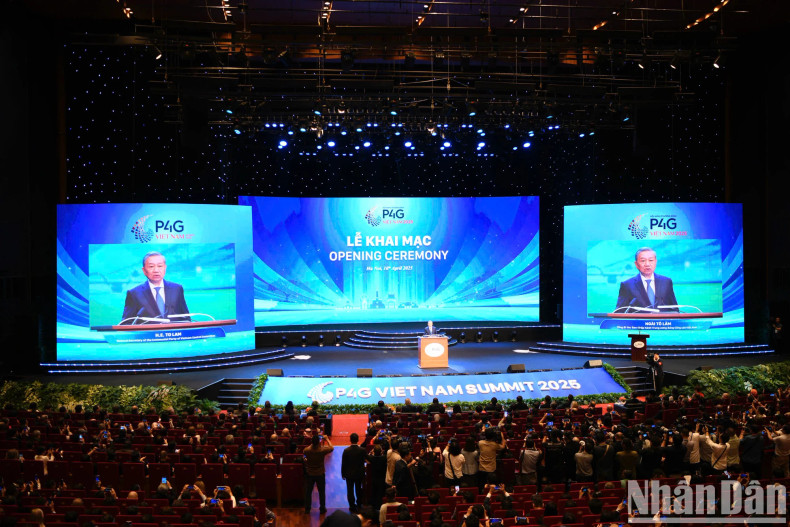 |
| An overview of the opening ceremony for the P4G Vietnam Summit 2025. (Photo: NDO) |
Prime Minister Pham Minh Chinh affirmed green transition as an inevitable path, an objective requirement, a strategic choice, and a top priority for achieving sustainable development goals.
He also emphasised that it is essential to build upon three foundational pillars including an inclusive and equitable green institutional framework, green economic capacity and green international cooperation. Vietnamese Government leader’s three pillars represent a comprehensive approach that not only addresses environmental issues but also promotes social equity and economic growth.
Companionship from international communities
On the sidelines of the P4G Summit, many experts and international organisations noted that Vietnam has the potential to drive green transition. Swedish Ambassador to Vietnam Johan Ndisi affirmed: “It is truly inspiring to see Vietnam’s ambitions to become a leader in the region when it comes to green growth and sustainability. As a long-standing champion of sustainable development, Sweden warmly welcomes this momentum.”
It is truly inspiring to see Vietnam’s ambitions to become a leader in the region when it comes to green growth and sustainability.
Swedish Ambassador to Vietnam Johan Ndisi
As a leading international organisation in agriculture, the International Fund for Agricultural Development (IFAD) has been developing its long-standing partnership with Vietnam through various practical programmes and projects including the Commercial Smallholder Support Project (CSSP) in the northern uplands of Vietnam which is empowering local cooperatives to adopt more innovative, market-oriented practices; the Adaptation to Climate Change in the Mekong Delta Project, which introduced a pioneering model that integrates aquaculture with rice cultivation; and new initiatives in the central coastal and central highlands areas.
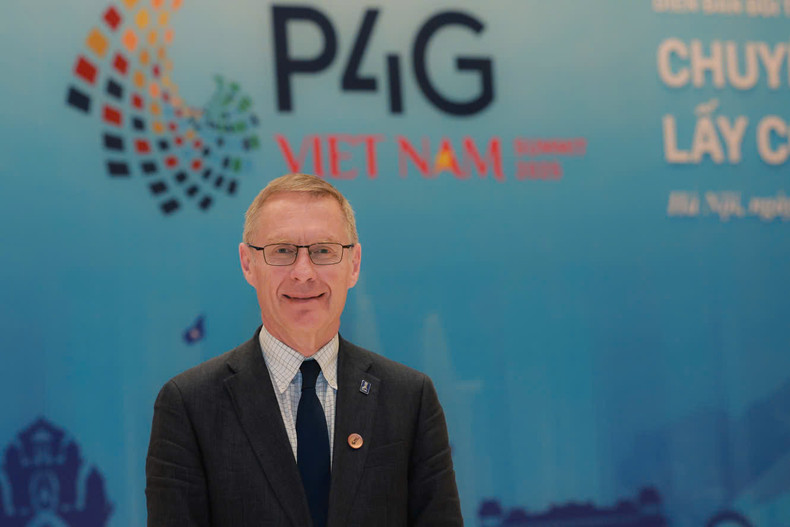 |
| Associate Vice-President of the IFAD’s Department for Country Operations Donal Brown. (Photo: the IFAD) |
Associate Vice-President of the IFAD’s Department for Country Operations Donal Brown, who was in Vietnam to attend the P4G Summit, noted: “Our focus has always been on empowering rural communities, particularly women, youth, and ethnic minorities. Our training programmes, often delivered at the provincial and local levels, are tailoured to promote both modern agricultural techniques and sustainable environmental practices. By equipping communities with the right tools, knowledge, and technologies, we are helping them become more resilient to climate and market shocks—and more confident in building a better future.”
"Our training programmes, often delivered at the provincial and local levels, are tailoured to promote both modern agricultural techniques and sustainable environmental practices."
Associate Vice-President of the IFAD’s Department for Country Operations Donal Brown
Notably, the IFAD is about to launch RECAF – Achieving Emission Reductions in Vietnam, in partnership with the Government of Vietnam. Scheduled for official launch in June 2025, RECAF addresses both the urgent climate challenges and economic opportunities for marginalised populations as well as boost agricultural productivity, improve food security, strengthen rural livelihoods, and contribute to forest conservation.
After visiting farmers in Bac Kan Province under the CSSP project, Donal Brown realised that “with IFAD’s support, farmers are adopting practical, affordable innovations that are improving yields, strengthening market linkages, and building climate resilience”.
Action today for sustainable future tomorrow
The P4G Summit 2025 in Hanoi exceeded expectations not only in terms of organisation but also in creating fresh momentum for green growth in Vietnam and the region. With strong commitments, clear policies, and concrete actions, Vietnam is affirming its role as a hub for global green cooperation.
As the host country, Vietnam not only showcased its national efforts but also conveyed a clear message that green development is an inevitable path that must be pursued in a fair and inclusive manner. According to the Associate Vice-President of the IFAD’s Department for Country Operations, “the Summit presents a vital platform to highlight Vietnam’s achievements, exchange knowledge, and engage with governments, private sector partners, and civil society to co-create sustainable solutions.”
 |
| Swedish Ambassador to Vietnam Johan Ndisi. (Photo: Tung Lam) |
Vietnam also called on developed countries to step up support in terms of finance, technology, and human resource training for developing nations, including Vietnam, to ensure fairness in the green transition process.
The Swedish Ambassador to Vietnam Johan Ndisi affirmed: “The global urgency of climate change demands decisive action from Vietnam, Sweden and all nations. We must harness the full potential of financing, innovation, and cutting-edge technologies to drive environmental resilience and inclusive economic growth.”
Despite challenges ahead, with the support of the international community and a strong aspiration for green development, Vietnam is fully capable of becoming a model for sustainable growth in the 21st century.
